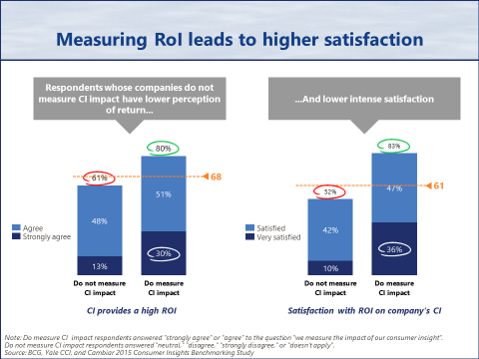The grbnnews.com website, including all of its features and content (‘Website’) is a service made available by Global Research Business Network (GRBN), and all content and information provided on and through this Website (‘Content’) may be used solely under the following terms and conditions. Users of this website agree to be bound by these terms and conditions, which are subject to change at the discretion GRBN.
Intellectual Property
By using this Website, you agree that the content and Website are protected by copyrights, trademarks, service marks, patents or other proprietary rights and laws and may not be modified, copied, republished or distributed without acknowledging the grbnnews.com website as the source of such material or information. All intellectual property in relation to material included on this site belongs to GRBN or to the third party. In the later case, the IP owner agrees to grant rights to GRBN under the “User generated content” section below. The third-party content included in this site (including article contributors and advertisers) is subject to that third party’s terms and conditions of use.
Liability
We will do our best to ensure that the content and information published on our Website are accurate, however, as GRBN relies on the submissions of the third-parties, the completeness, adequacy or currency of the Content is not warranted or guaranteed. Your use of information on this Website or materials linked from this Website is at your own risk. We accept no liability for any loss, injury, claim, liability, or damage of any kind resulting from your use of this Website or any facts or opinions appearing on this website. The content of the Website is not intended to and does not constitute legal, financial, medical or technical advice of any other kind.
User generated content
Some of the Website content is generated by the members of GRBN or the general public. If you submit content to GRBN, you agree to be bound by these terms and conditions.
Unless otherwise agreed in writing, by submitting your content to the Website, you grant the GRBN an irrevocable, royalty free and perpetual licence to use, disclose and sub-licence the content and understand that GRBN may use all intellectual property rights in your content, including publication of that material on the Website, hard copy publications or in electronic media, social media, using your content in advertising and promotional material for the GRBN, without restriction and without making payment to you.
You acknowledge that you are solely responsible for the accuracy, completeness and legal compliance of the submitted content.
You warrant that you have all the necessary rights (including any intellectual property rights), in the Content (including photographs, illustrations, audio and video content) you contribute to the Website.
GRBN editors and moderators at their discretion may edit or remove your content.
These terms and conditions are subject to change at any time.
Third party links
Some of the Website content includes links to the third-party content. GRBN makes no representations about any other web sites and by accessing third party links, you understand that it is independent from GRBN resources and that we have no control over the content or availability of that content. You understand that the information and opinions in the third-party content is neither endorsed by nor does it reflect the belief of GRBN.
Advertisers
This Website may contain advertising and sponsorship. Advertisers and sponsors are responsible for ensuring that material submitted for inclusion on this Website is accurate and complies with applicable laws.
Privacy
Your use of this Website is subject to the GRBN’s Privacy Policy.
 Most of the reason, we suspect, lies with the old mantra that it can’t be done. But if nearly a third of organizations actually are doing it, it obviously can be done! How? Here are some thoughts – the list is by no means exhaustive and feel free to add to it:
1. Quantitative in-market performance (awareness, familiarity, sales) – even if some things changed between the research and in-market impact, there is no reason not to claim at least some credit for positive results;
2. Cost reductions and process improvements – if the research pointed to ways in which efficiency could be improved, talk about it;
3. Speed in decision-making – talk about the way in which research has become more nimble and business-focused;
4. Point to key insights that improved understanding at a senior level and the consequences of that improvement;
5. Qualitative and anecdotal evidence for improved business performance.
As a combined example of some of these, let me offer this anecdote: a consumer technology company’s brand tracker was showing all indicators going in the right direction – but sales were declining. At the initiative of the MR department, ethnographers went into retail stores and quickly discovered the truth: the competition was bribing stores to cover up the client’s goods and POS materials. Result: an increase of 20% in sales.
Now, what are your stories?
1 The study was conducted in late 2015 among over 600 users and practitioners of research in over 90 major corporations.
Most of the reason, we suspect, lies with the old mantra that it can’t be done. But if nearly a third of organizations actually are doing it, it obviously can be done! How? Here are some thoughts – the list is by no means exhaustive and feel free to add to it:
1. Quantitative in-market performance (awareness, familiarity, sales) – even if some things changed between the research and in-market impact, there is no reason not to claim at least some credit for positive results;
2. Cost reductions and process improvements – if the research pointed to ways in which efficiency could be improved, talk about it;
3. Speed in decision-making – talk about the way in which research has become more nimble and business-focused;
4. Point to key insights that improved understanding at a senior level and the consequences of that improvement;
5. Qualitative and anecdotal evidence for improved business performance.
As a combined example of some of these, let me offer this anecdote: a consumer technology company’s brand tracker was showing all indicators going in the right direction – but sales were declining. At the initiative of the MR department, ethnographers went into retail stores and quickly discovered the truth: the competition was bribing stores to cover up the client’s goods and POS materials. Result: an increase of 20% in sales.
Now, what are your stories?
1 The study was conducted in late 2015 among over 600 users and practitioners of research in over 90 major corporations.
 Simon Chadwick is the Managing Partner of Cambiar. Before founding Cambiar in 2004, Simon was Global CEO of NOP World.
Simon was 2004 Chair of CASRO (the Council of American Survey Research Organizations) and currently sits on the CASRO Board; he has also been a member of the Board of Trustees of the Marketing Science Institute.
He and his colleagues at Cambiar publish the Future of Research (FoR) annual study of trends in the industry as well as the Cambiar Capital Funding Index.
In addition, Simon is Editor-in-Chief of Research World, ESOMAR’s global magazine, and serves on the Board of Directors of a number of research-related companies. Simon is a Fellow of the Market Research Society. He holds an MA in Philosophy, Politics and Economics from Oxford University, England and has done post-graduate studies at both Columbia and Harvard business schools in Change Management and Strategic Management.
Simon Chadwick is the Managing Partner of Cambiar. Before founding Cambiar in 2004, Simon was Global CEO of NOP World.
Simon was 2004 Chair of CASRO (the Council of American Survey Research Organizations) and currently sits on the CASRO Board; he has also been a member of the Board of Trustees of the Marketing Science Institute.
He and his colleagues at Cambiar publish the Future of Research (FoR) annual study of trends in the industry as well as the Cambiar Capital Funding Index.
In addition, Simon is Editor-in-Chief of Research World, ESOMAR’s global magazine, and serves on the Board of Directors of a number of research-related companies. Simon is a Fellow of the Market Research Society. He holds an MA in Philosophy, Politics and Economics from Oxford University, England and has done post-graduate studies at both Columbia and Harvard business schools in Change Management and Strategic Management.








